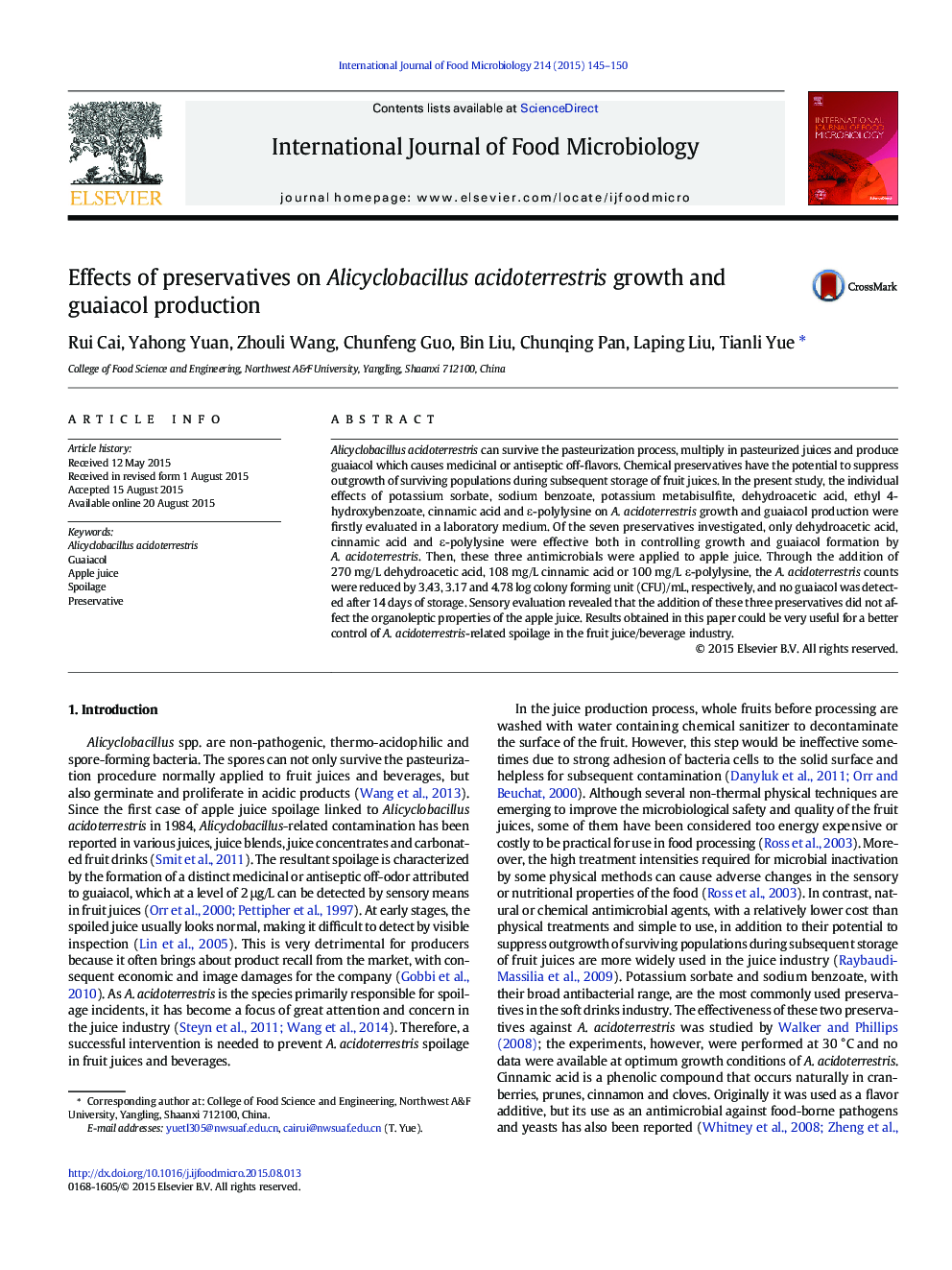| Article ID | Journal | Published Year | Pages | File Type |
|---|---|---|---|---|
| 4366470 | International Journal of Food Microbiology | 2015 | 6 Pages |
•Three preservatives were able to control A. acidoterrestris spoilage in apple juice.•The three preservatives include dehydroacetic acid, cinnamic acid and ε-polylysine.•Addition of these three preservatives did not affect acceptability of apple juice.•The addition of ε-polylysine did not affect the quality of apple juice.
Alicyclobacillus acidoterrestris can survive the pasteurization process, multiply in pasteurized juices and produce guaiacol which causes medicinal or antiseptic off-flavors. Chemical preservatives have the potential to suppress outgrowth of surviving populations during subsequent storage of fruit juices. In the present study, the individual effects of potassium sorbate, sodium benzoate, potassium metabisulfite, dehydroacetic acid, ethyl 4-hydroxybenzoate, cinnamic acid and ε-polylysine on A. acidoterrestris growth and guaiacol production were firstly evaluated in a laboratory medium. Of the seven preservatives investigated, only dehydroacetic acid, cinnamic acid and ε-polylysine were effective both in controlling growth and guaiacol formation by A. acidoterrestris. Then, these three antimicrobials were applied to apple juice. Through the addition of 270 mg/L dehydroacetic acid, 108 mg/L cinnamic acid or 100 mg/L ε-polylysine, the A. acidoterrestris counts were reduced by 3.43, 3.17 and 4.78 log colony forming unit (CFU)/mL, respectively, and no guaiacol was detected after 14 days of storage. Sensory evaluation revealed that the addition of these three preservatives did not affect the organoleptic properties of the apple juice. Results obtained in this paper could be very useful for a better control of A. acidoterrestris-related spoilage in the fruit juice/beverage industry.
